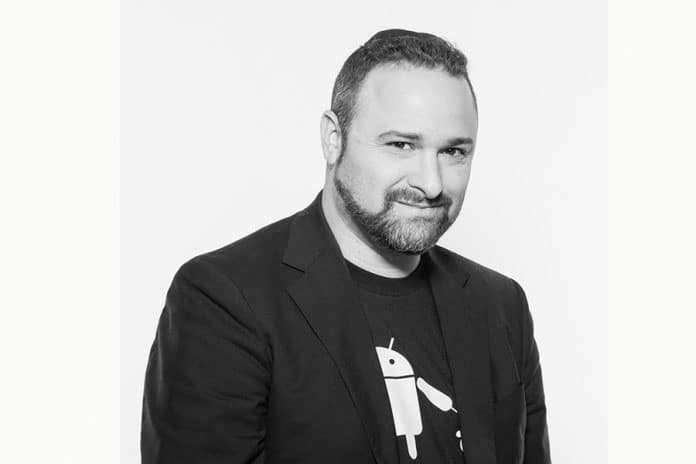 Annie Murphy and Salma Hayek in an episode of “Black Mirror” that might make you think twice about whether you are a role model or not.
Annie Murphy and Salma Hayek in an episode of “Black Mirror” that might make you think twice about whether you are a role model or not. Pirkei Avot teaches: “Who is rich? The one of is happy with his lot.”
With people curating their social media to embellish their lives, and many jealous scrollers hoping for the downfall of those who are more attractive or have more money, society, to an extent has become a world of haters. Netflix’s fantastic series “Black Mirror” is a 21st Century version of “The Twilight Zone” that focuses on man’s battle with technology.
The first episode of Season 6, “Joan is Awful,” is a story of surveillance capitalism run amok. The episode opens with Joan, a middle-manager at Sonicle, a tech company. She clumsily fires a member of her team, talks to her therapist about the lack of passion she feels for her fiance, and arranges a meeting with an ex. When she comes home and settles in with her fiancé for a night of TV, the first show that comes up in their “Streamberry” feed is something called “Joan is Awful.”
That show, which stars Salma Hayek as “Joan,” mirrors the real Joan’s life; Hayek’s hair even has the same blonde streaks as Joan. Joan is horrified; her friends, family and coworkers also watched the show.
She decides to sue Streamberry; they can’t just use her life, she complains to a lawyer. Unfortunately, she’s told, they can. It’s included in the “terms and conditions” she agreed to when she joined Streamberry. And through AI and other technology, Streamberry can almost immediately take her life and turn it into a show. It’s not even the real Salma Hayek playing “Joan,” it’s Hayek’s face and voice added by CGI. To get Hayek’s attention, Joan interrupts a church wedding in perhaps the most disgusting way you can imagine.
Is “Black Mirror” creator Charlie Brooker saying that with advances in technology, that those who believe in a higher power are forgetting that God sees everything we do?
Perhaps.
The episode plays on the fear people have about how their data is being used. How it’s possible that when they have a conversation with someone on their phone about a movie or a product, an ad for that movie pops up on their social media feed. That corporations have powers over individuals is also something the episode taps into, as well as the fear of people being overtaken by. And it’s even more poignant with the idea held by some (or perhaps as a bargaining bluff) that A.I. scripted shows could rival the real writers who are currently on strike.
Joan, played by Annie Murphy of “Schitt’s Creek” fame, tries to figure out a solution to her predicament. She feels like she is going through the motions and lying to others and herself. “I feel like I’m not the main character in my own life story,” she tells her therapist.
What’s so special about Joan?
“Absolutely nothing,” a woman in content creation at Streamberry tells her. Why only show the parts of her life that make her look bad? Negativity drives engagement.

Hillel Fuld, a commentator who focuses on start-ups and the Israeli high-tech industry, told the Journal he watched the episode. “I am not surprised that the episode scared people because as technology gets stronger, and specifically AI, people are getting very worried,” he said. “But that’s the thing, whenever a new technology comes out, people are worried. Think about the tractor and how scared farmer must have been. So, Yes, AI is getting smarter, our devices more sophisticated, but in my opinion, like with most new innovations, the good far exceeds the bad.”
In the episode’s final twist, we find out that Streamberry is planning to create shows taken from other peoples’ lives, where everybody will be the central character of their own show, called [blank] “Is Awful.”
“As for the assumption that people are bad, ‘bad’ isn’t the right word,” Fuld said. “People are human, Humans make mistakes constantly, some deliberate and some not. If any human being was given a mirror to view their life, they’d be embarrassed. This is what we know to expect after 120 years. So the goal is to do more good than bad in this world, so when we view our lives in Shamayim (heaven) we feel minimal shame.”
The episode may make you think twice about your own behavior. “The show definitely leaves you thinking about your life choices and what it’s like to have someone, God view your every move and monitor your every decision,” Fuld said.
R. Becker, an attorney and author of the “Annabelle and Aiden” children’s book series, said he is a fan of the episode for its complexity. “I don’t really fear the power of AI,” Becker said. “I analogize this to the advent of the automobile or any new technology. There is always fear at first but eventually, we learn to harness it to our needs.’
Will the show make people feel introspective and try to be better people, or make them feel paranoid and perhaps not tell the truth to their therapists?
At the time of the High Holy Days, Jews are supposed to apologize to those we have wronged, and think about our good and bad deeds on a scale as God is judging whether or not we will live for the next year, but many are jaded and don’t really take this to heart.
Pirkei Avot also teaches: “Who is the wise person? The one who learns from everyone.”
What do we learn from Joan? That’s a complex question for many reasons. One thing is that there is a Jewish concept of giving people the benefit of the doubt, known as “Dan l’chaf zechut” or “Judge people on their merits.” In real life, people are much more inclined to click on a story that is negative or watch a reality show where people claw at each other as opposed to a positive story or a show where people have cake and tell each other they are wonderful.
Whether one believes in God or not, the show gives of a feeling that humans should do the right thing not for some reward but due to the power of kindness.
Perhaps before we call someone “awful” we should think about how we would like to be judged. Or maybe, judging someone as awful in some cases, might be correct.






















 More news and opinions than at a Shabbat dinner, right in your inbox.
More news and opinions than at a Shabbat dinner, right in your inbox.